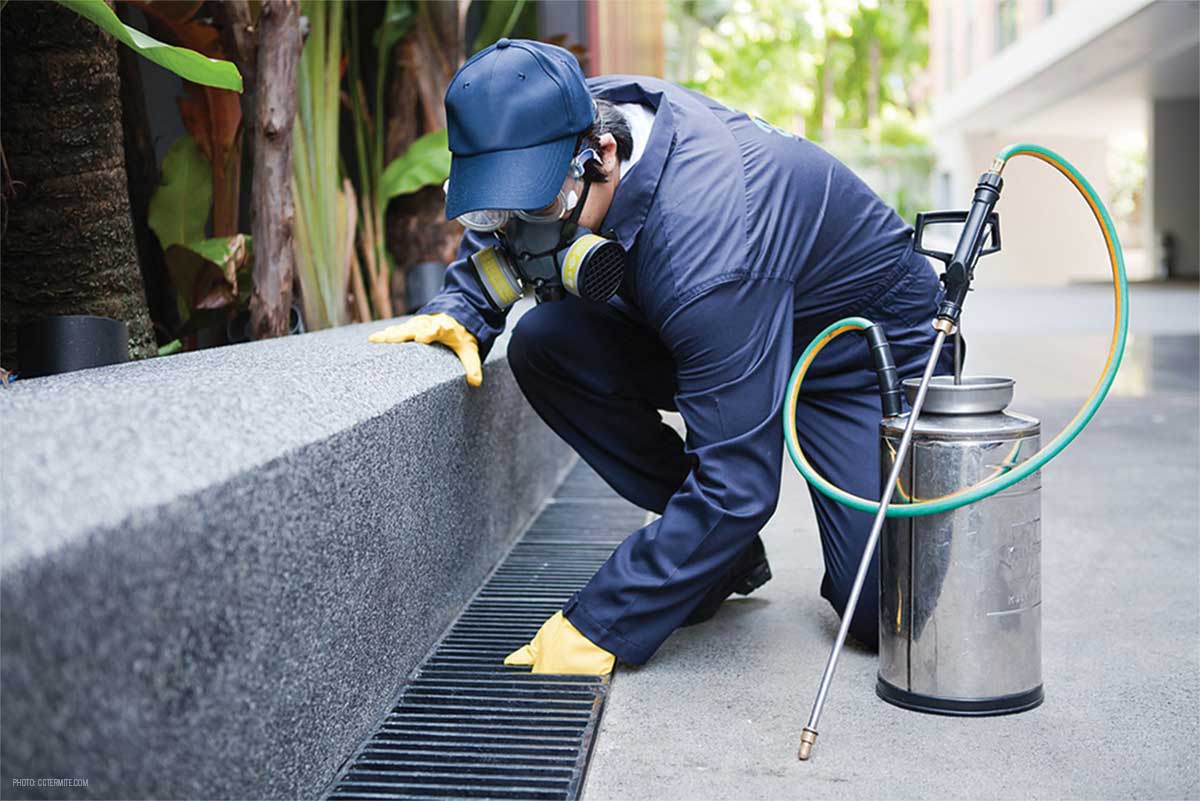Relied on Exterminator Near Me: Your Regional Pest Control Option!
Wiki Article
Professional Insect Control Techniques for Long-Term Outcomes
In the world of pest control, accomplishing continual efficacy and lasting outcomes needs a careful method that goes beyond simple extermination. Specialist parasite control methods encapsulate an extensive approach that starts with a detailed inspection and assessment, adhered to by precise parasite recognition to understand their habits patterns. The execution of Integrated Pest Monitoring (IPM) principles, paired with eco-conscious therapies, forms the foundation of lasting bug eradication. Nevertheless, truth test depends on the recurring surveillance and maintenance of the dealt with locations, making certain a pest-free environment for the near future. By delving right into the details of these methods, a deeper understanding of specialist parasite control techniques for enduring outcomes emerges.Assessment and Evaluation
Upon getting in a property for parasite control services, the first action is a thorough examination and analysis to recognize the extent of the problem and figure out one of the most effective treatment strategy. Specialist pest control specialists are educated to meticulously examine the facilities, looking for indications of bug task such as droppings, gnaw marks, nests, or any type of architectural damages. They will additionally examine the conditions that might be attracting pests, such as food sources, water leakages, or entry factors.
Bug Recognition and Habits

In addition, recognizing the actions of the identified parasite is key to applying effective control procedures. Understanding where bugs nest, what they feed on, and their task patterns can help pest control experts create approaches to eradicate them effectively.
Integrated Bug Management (IPM)
Integrated Insect Monitoring (IPM) strategies integrate multiple strategies to manage and prevent parasite invasions in a sustainable and environmentally pleasant way. pest control near me. By integrating approaches such as organic control, habitat manipulation, modification of cultural methods, and the use of immune ranges, IPM intends to reduce the use of chemical pesticidesAmong the vital concepts of IPM is the focus on avoidance. This proactive technique entails monitoring bug populations frequently to identify any type of potential problems prior to they intensify. By recognizing bug problems early on, pest control actions can be implemented swiftly and efficiently.
Moreover, IPM advertises the use of safe bug control approaches whenever possible. This can consist of employing natural predators of the parasites, introducing useful pests, or making use of pheromones to disrupt over here mating patterns. By decreasing reliance on chemical pesticides, IPM not just secures the environment however additionally aids maintain a balance in the ecosystem.
Environmentally-Friendly Treatments
Applying eco-conscious strategies in bug control treatments can efficiently resolve infestations while prioritizing ecological sustainability. Environmentally-friendly treatments concentrate on minimizing the influence of parasite control techniques on environments, non-target organisms, and human health and wellness. These techniques frequently involve the use of natural predators, such as ladybugs or nematodes, to regulate pest populations, reducing the need for chemical interventions. Furthermore, methods like habitat adjustment, such as adjusting moisture levels or eliminating food sources, can help deter parasites without using damaging materials.An additional key aspect of environmentally-friendly advice treatments is the usage of organic and biodegradable items that break down quickly without leaving unsafe deposits in the setting. Botanical pesticides stemmed from plants like chrysanthemums or neem offer efficient bug control while posing minimal threat to non-target species. Utilizing techniques like heat therapies or scent traps can target details parasites with accuracy, decreasing the total ecological effect of insect control methods.
Recurring Surveillance and Maintenance
Regular assessments by qualified professionals are needed to identify any type of indicators of insect activity, evaluate the effectiveness of previous treatments, and make changes to the parasite control plan as needed. By keeping an eye on pest populations a knockout post over time, pest control specialists can track fads, prepare for prospective concerns, and apply preventative measures to decrease the threat of future problems.
Along with tracking, upkeep methods are essential for long-term parasite control success. This includes applying appropriate hygiene steps to remove prospective food and water resources for bugs, sealing access factors to stop insects from going into the premises, and attending to any type of structural problems that can facilitate parasite infestations (bed bug exterminator). By incorporating continuous monitoring and maintenance into an incorporated insect administration approach, companies can ensure a pest-free environment and protect their residential property versus expensive damage and health and wellness dangers
Conclusion
Finally, using specialist bug control methods such as extensive inspection and assessment, exact insect identification and understanding of their actions, incorporated bug administration approaches, environmentally-friendly therapies, and recurring surveillance and upkeep are important for accomplishing long-term results in insect control. By implementing these methods, people can successfully take care of bug infestations and maintain a pest-free environment in a sustainable fashion.Report this wiki page